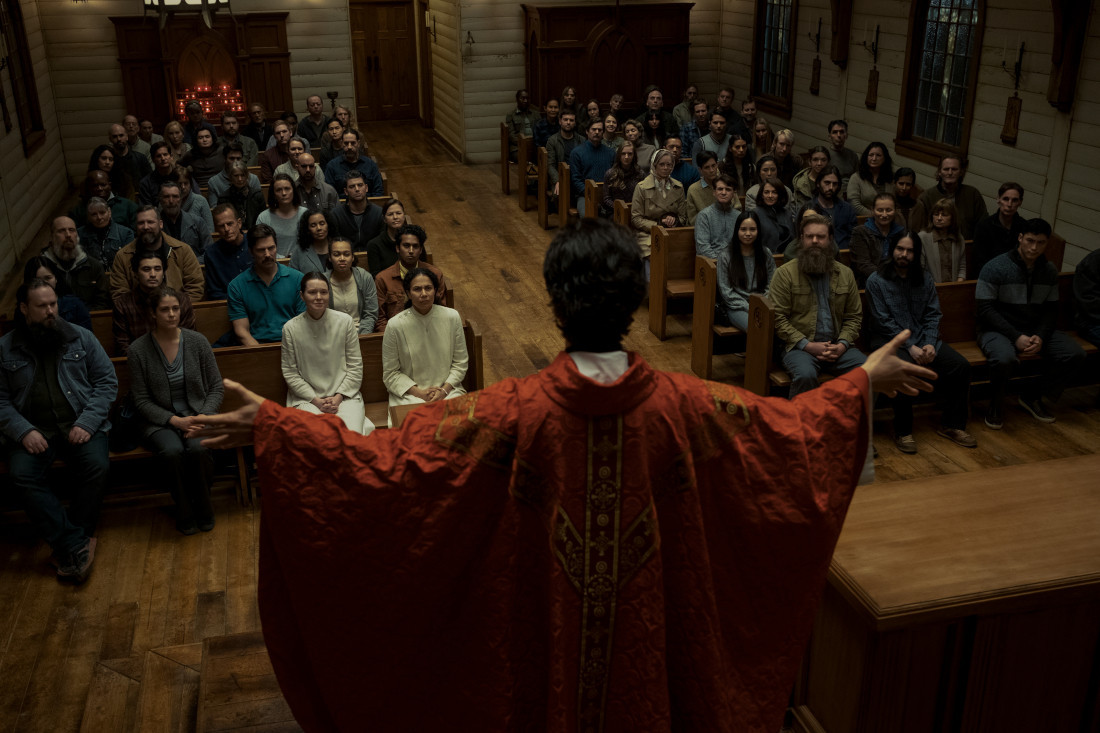Critipeg: Midnight Mass
★★★ out of 5
Netflix’s limited series Midnight Mass is a supernatural horror that follows an insular, religious island community that experiences strange happenings after a new priest arrives in town.
In the show’s first episode, “Book I: Genesis,” a good portion of the runtime is devoted toward establishing a long lineup of hefty themes.
Trauma, PTSD, faith and religion – among other topics – are represented through the archetypal characters that almost come across as avatars for each theme.
It isn’t inherently terrible to utilize personifications of heavy subject matter to generate a story. Unfortunately, in Midnight Mass, each social issue is addressed through preachy monologues where one point of view is spotlighted. There is no discourse, just a dominant opinion.
It’s important to note that in “Book I: Genesis,” the dominant opinion is often spoken by the white, able-bodied characters. Considering how there are very few BIPOC and disabled bodies on screen, it’s worth mentioning exactly who gets to speak on any of the topics raised.
In this way, the show’s appeal might only reach a select audience. Specifically, those who have a stronger understanding of Catholicism might have a more enjoyable experience.
What’s more, the preachy monologues are lengthy and tend to bog down the story. They stall the narrative and generate boring pockets of time. It’s a shame, especially considering how the actors’ performances during their speeches are fairly well done.
The weighty philosophical commentary aside, Midnight Mass also laces its ruminations with interspersed moments of horror.
Sadly, the spooky element is lacklustre. In fact, based on the first episode alone, the series feels more like a drama than a supernatural horror.
Anyone looking for a frightful time with creepy church elements might be disappointed. Of course, every individual’s fear threshold is different, but the few terror-inducing moments in “Book I: Genesis” fall a little flat.
The issue lies predominantly in the buildup. Instead of lingering in that all-too-critical window right before the scare (where tension and suspense begin to surface), the payoff happens prematurely. This results in cheap jumpscares that come across as gimmicky.
And since the jumpscares are mainly used to illustrate the PTSD of one of the central characters, there’s very little threat. Knowing the character being haunted isn’t in any mortal peril brings down the fright factor significantly.
Plus, outside of signifying that the character has trauma, the jump-scary figment of PTSD doesn’t offer new insights or depth. In all fairness, this might change in future episodes, but in the pilot, it’s subpar.
Everything considered, Netflix’s Midnight Mass is clearly not for everyone. While the series might go on to expand beyond its early first-episode preachings, first impressions are critical, and this particular pilot left something to be desired. It falls short within the conventions of its genre and tackles ideas that other film and television shows handle better.
Published in Volume 76, Number 6 of The Uniter (October 21, 2021)








